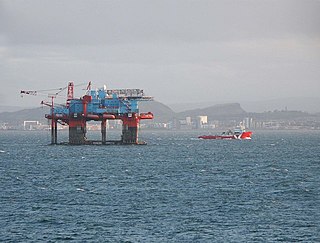Notes
| Common fields | ||
|---|---|---|
| Parallel fields | ||
| Related systems | ||
| See also | ||
| MacCartney v Oversley House Management | |
|---|---|
| Court | Employment Appeal Tribunal |
| Decided | 31 January 2006 |
| Citation(s) | [2006] IRLR 514 (EAT) |
| Keywords | |
| Minimum wage | |
MacCartney v Oversley House Management [2006] IRLR 514 (EAT) is a UK labour law case regarding the National Minimum Wage Act 1998.
McCartney was a resident manager at Oversley House, which was originally built as the Alcester Poor Law Union workhouse in 1834. She needed to be within three miles of the residential home and be contactable by mobile phone. She had to respond to emergencies 24 hours a day, four days a week, in her contract. She got £8,750 pa, paid monthly, with rent-free accommodation. She claimed that she had been denied proper periods of rest and rest breaks under WTR 1998 rr 10(1) and 12(1). She said she had ‘salaried hours work’ under r 4(1) and that all time on call was working time, so she was getting less than the minimum wage.
The Tribunal found she was not ‘working’ while on call because she could take rest, and so dismissed her claim. As for the minimum wage, she was said to have ‘unmeasured work’ and not salaried work, so her whole shift was not working time. She therefore got over the minimum for her 40-hour week. Mrs MacCartney appealed.
Richardson J overturned the Tribunal and held that she was employed on salary work within NMWR 1999 r 4 for the whole period, even though much was spent at home and for part of it she was asleep. Under WTR 1998 r 12(1), she was entitled to an uninterrupted rest break of 20 minutes. She worked more than six hours a day, but the kind of work did not allow for uninterruption. WTR 1998 regulation 2(1)(a) defined working time to include a worker not actually doing anything, but required to be present and remain available at a place determined by an employer. So the whole period on call, within short distance of her home was working time. So she could get daily rest period under r 10(1). Under the NMWR 1999 r 4, she had ‘salaried hours work’. So she was not paid the minimum wage.
Labour laws are those that mediate the relationship between workers, employing entities, trade unions, and the government. Collective labour law relates to the tripartite relationship between employee, employer, and union.
Overtime is the amount of time someone works beyond normal working hours. The term is also used for the pay received for this time. Normal hours may be determined in several ways:

A wage is payment made by an employer to an employee for work done in a specific period of time. Some examples of wage payments include compensatory payments such as minimum wage, prevailing wage, and yearly bonuses, and remunerative payments such as prizes and tip payouts. Wages are part of the expenses that are involved in running a business. It is an obligation to the employee regardless of the profitability of the company.

Juan José de Amézaga Landaroso was a Uruguayan political figure.

The National Minimum Wage Act 1998 creates a minimum wage across the United Kingdom. From 1 April 2022 this was £9.50 for people age 23 and over, £9.18 for 21- to 22-year-olds, £6.83 for 18- to 20-year-olds, £4.81 for people under 18 and apprentices.
The Labor Code of the Philippines is the legal code governing employment practices and labor relations in the Philippines. It was enacted on Labor day, May 1, 1974 by Late President of the Philippines Ferdinand Marcos in the exercise of his then extant legislative powers.

Indian labour law refers to law regulating labour in India. Traditionally, the Indian government at the federal and state levels has sought to ensure a high degree of protection for workers, but in practice, this differs due to the form of government and because labour is a subject in the concurrent list of the Indian Constitution. The Minimum Wages Act 1948 requires companies to pay the minimum wage set by the government alongside limiting working weeks to 40 hours. Overtime is strongly discouraged with the premium on overtime being 100% of the total wage. The Payment of Wages Act 1936 mandates the payment of wages on time on the last working day of every month via bank transfer or postal service. The Factories Act 1948 and the Shops and Establishment Act 1960 mandate 15 working days of fully paid vacation leave each year to each employee with an additional 7 fully paid sick days. The Maternity Benefit (Amendment) Act, 2017 gives female employees of every company the right to take 6 months' worth of fully paid maternity leave. It also provides for 6 weeks worth of paid leaves in case of miscarriage or medical termination of pregnancy. The Employees' Provident Fund Organisation and the Employees' State Insurance, governed by statutory acts provide workers with necessary social security for retirement benefits and medical and unemployment benefits respectively. Workers entitled to be covered under the Employees' State Insurance are also entitled to 90 days worth of paid medical leaves. A contract of employment can always provide for more rights than the statutory minimum set rights. The Indian parliament passed four labour codes in the 2019 and 2020 sessions. These four codes will consolidate 44 existing labour laws. They are: The Industrial Relations Code 2020, The Code on Social Security 2020, The Occupational Safety, Health and Working Conditions Code, 2020 and The Code on Wages 2019.

The working time regulations 69 is a statutory instrument in UK labour law which implements the EU Working Time Directive 2003. It does not extend to Northern Ireland.

Revenue and Customs Commissioners v Annabel's Ltd [2009] EWCA Civ 361 is a UK labour law case regarding the treatment of tips under the National Minimum Wage Act 1998. It led to the abolition of tips being considered part of wages for the purpose of assessing compliance with the national minimum wage.
Walton v Independent Living Organisation [2003] EWCA Civ 199 is a UK labour law case regarding the National Minimum Wage Act 1998.

British Nursing Association v Inland Revenue[2002] EWCA Civ 494 is a UK labour law case regarding the National Minimum Wage Act 1998.

Scottbridge Construction Ltd v Wright [2002] ScotCS 285 is a UK labour law case regarding the National Minimum Wage Act 1998.
Robinson-Steele v RD Retail Services Ltd (2006) C-131/04 is a European labour law and UK labour law case concerning the Working Time Directive, which is relevant for the Working Time Regulations 1998.
Her Majesty's Revenue and Customs v Stringer and Schultz-Hoff v Deutsche Rentenversicherung Bund [2009] UKHL 31 is a European labour law and UK labour law case concerning the Working Time Directive, which is relevant for the Working Time Regulations 1998.
Working time in the United Kingdom is regulated in UK labour law in respect of holidays, daily breaks, night work and the maximum working day under the Working Time Regulations 1998. While the traditional mechanisms for ensuring a "fair day's wage for a fair day's work" is by collective agreement, since 1962 the UK created minimum statutory rights for every individual at work. The WTR 1998 follow the requirements of the Working Time Directive, which allowed an "opt out" from the maximum working week, set at 48 hours. Other reforms have included the 28 holiday minimum per year, 20 minute breaks for each six hours worked, and a maximum average of 8 hours work in a 24-hour period for night-workers.

The National Minimum Wage Regulations 1999 were passed as a statutory instrument under the National Minimum Wage Act 1998 to specify various detailed points about how to calculate whether someone is being paid the minimum wage, who gets it, and how to enforce it.

The Minimum Wages Act 1948 is an Act of Parliament concerning Indian labour law that sets the minimum wages that must be paid to skilled and unskilled labours.

Russell v Transocean International Resources Ltd [2011] UKSC 57 is a UK labour law case, concerning the interpretation of the Working Time Directive. It is notable that Lord Hope remarked that the right to paid holidays is probably best interpreted as requiring that workers may take a whole week at a time, rather than individual days.

Uber BV v Aslam [2021] UKSC 5 is a landmark case in UK labour law and company law on employment rights. The UK Supreme Court held the transport corporation, Uber, must pay its drivers the national living wage, and at least 28 days paid holidays, from the time that drivers log onto the Uber app, and are willing and able to work. The Supreme Court decision was unanimous, and upheld the Court of Appeal, Employment Appeal Tribunal, and Employment Tribunal. The Supreme Court, and all courts below, left open whether the drivers are also employees but indicated that the criteria for employment status was fulfilled, given Uber's control over drivers.

Royal Mencap Society v Tomlinson-Blake [2021] UKSC 8 is a UK labour law case, concerning the right to be paid, when an employer constrains their worker's freedom.